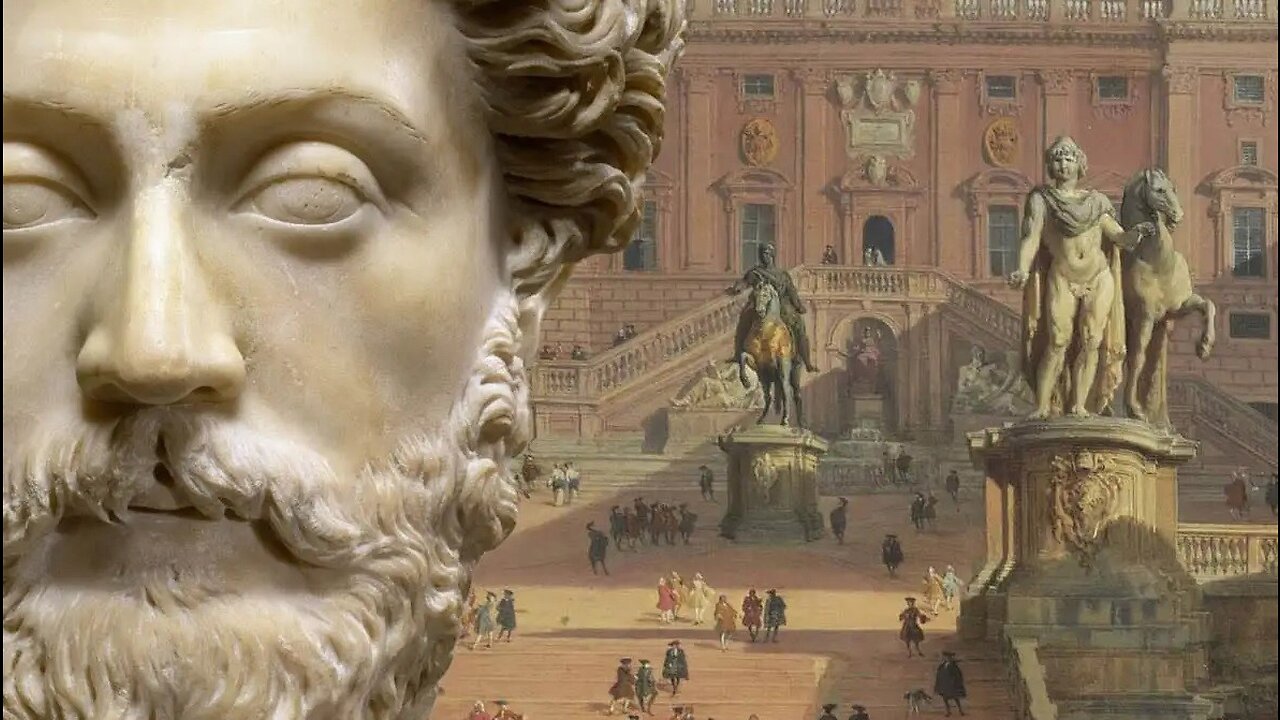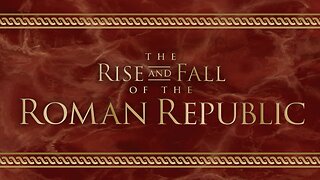Premium Only Content

Emperors of Rome | The Christian Emperor: Constantine (Lecture 35)
Lecture 35: This second lecture on Constantine examines his conversion to Christianity, his impact on the church, his administrative and military reforms, and the founding of Constantinople in 324. This last act established the basis for the Byzantine Empire, which existed in various guises down to 1453 and had significant ramifications for European and Asian history. Of even greater historical importance is Constantine’s relationship with the heretofore reviled cult of Christianity. The matter of the emperor’s personal conversion, although interesting, is secondary to the more important patronal relationship the emperor established with the early church. Under Constantine, Christianity changed from an outsider’s religion to a state-sponsored religion, a transition that had seismic repercussions for subsequent history. By the time of Constantine’s death in May 337, Christianity was not quite the official religion of the Roman state, but it was well on its way there. We end with a survey of Constantine’s inadequate provisions for the succession.
Essential Reading:
Eusebius, Life of Constantine.
Zosimus, New History, book 2.
MacMullen, Constantine.
Supplementary Reading:
DIR, “Constantine.”
Lenski, Cambridge Companion to the Age of Constantine, especially chapters
4–10, 14–16.
Pohlsander, The Emperor Constantine, pp. 22–87.
-
 20:08
20:08
The Great Courses
6 days agoThe Rise And Fall Of The Roman Republic | The Ancient World Before Rome (Lecture 2)
114 -
 2:02:20
2:02:20
Nerdrotic
5 hours ago $1.61 earnedDECLASSIFIED: JFK, MLK UFO Immaculate Constellation Doc | Forbidden Frontier #089
61.1K10 -
 3:00:14
3:00:14
vivafrei
13 hours agoEp. 248: "Bitcoin Jesus" Begs Trump! Rekieta Gets Plea Deal! Pardons, Deportations, Bird Flu & MORE!
125K146 -
 3:44:06
3:44:06
Rising Rhino
12 hours ago $11.89 earnedWashington Commanders Vs Philadelphia Eagles: NFL NFC Championship LIVE Watch Party
56.3K4 -
 13:00
13:00
Exploring With Nug
6 hours ago $1.11 earnedHe Went To Get A Haircut And Vanished WIthout a Trace!
44.1K2 -
 18:53
18:53
DeVory Darkins
1 day ago $8.09 earnedTrump JUST ENDED Mayor Karen Bass During HEATED Meeting
78.4K212 -
 21:06
21:06
Russell Brand
10 hours agoIT'S COMING
134K424 -
 21:26
21:26
Stephen Gardner
1 day ago🔥What JUST leaked out of Congress must be STOPPED NOW!
132K280 -
 53:25
53:25
tether
11 days agoStability and Freedom in Chaos: The Story of Tether USD₮ | Tether Documentary (USDT)
144K5 -
 56:44
56:44
VSiNLive
2 days agoFollow the Money with Mitch Moss & Pauly Howard | Hour 1
80.9K2